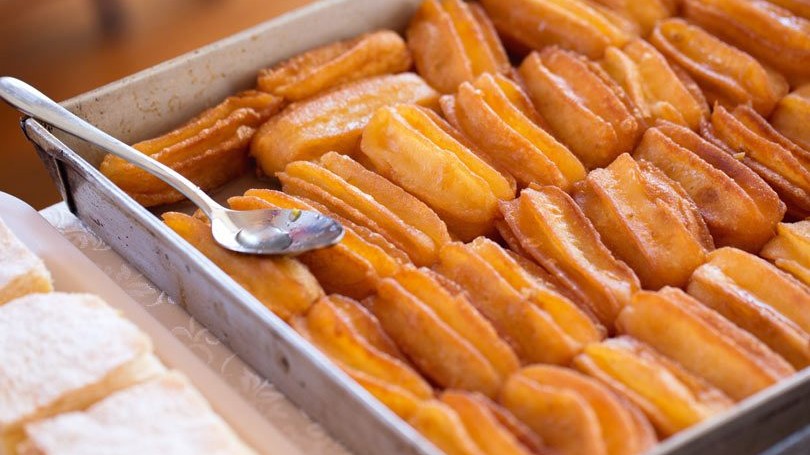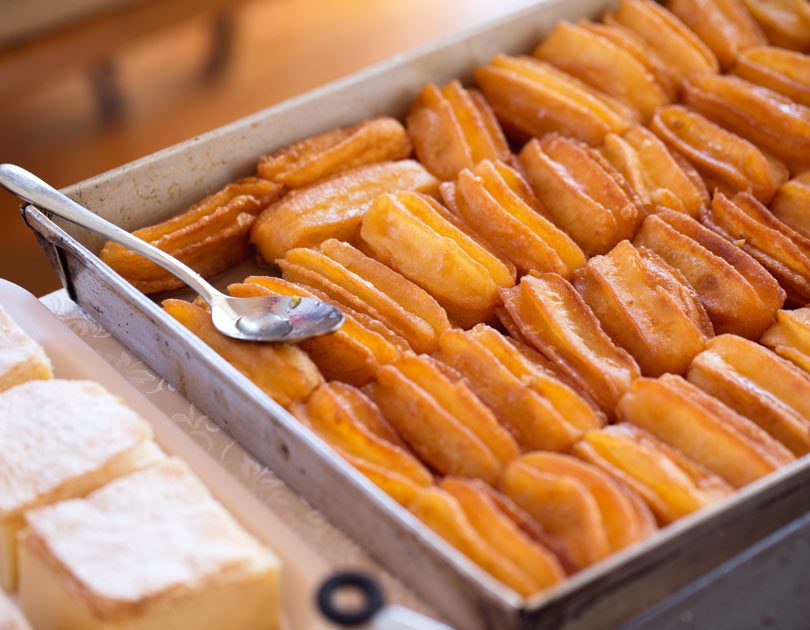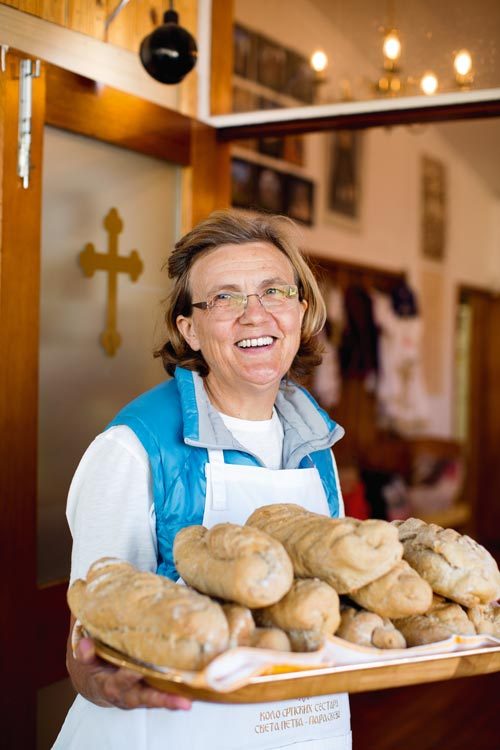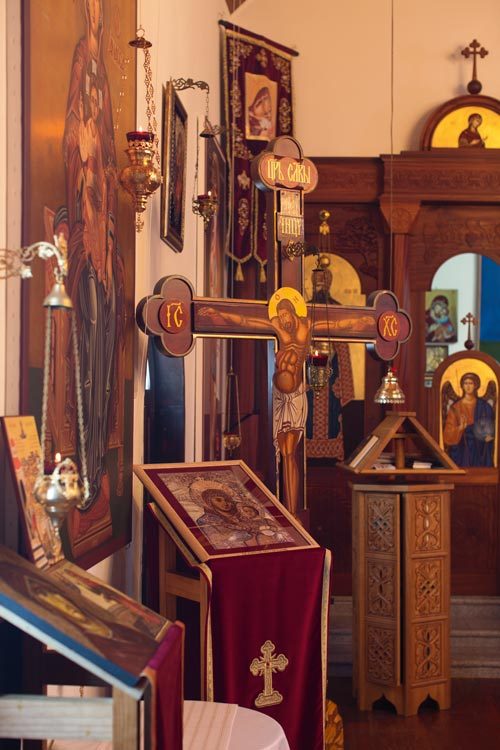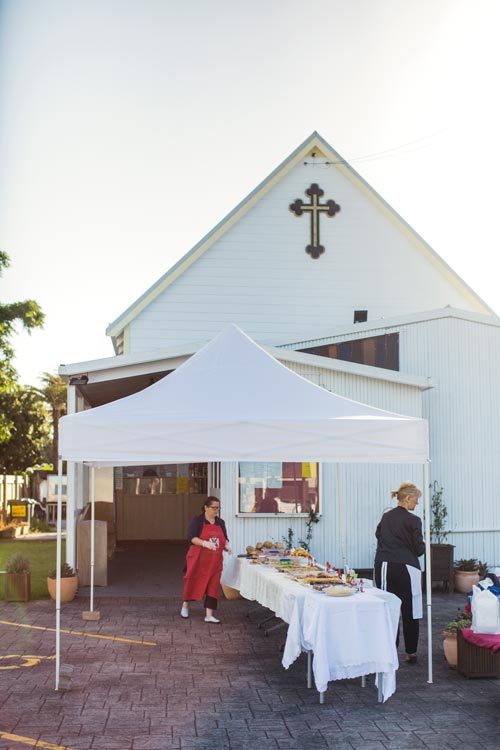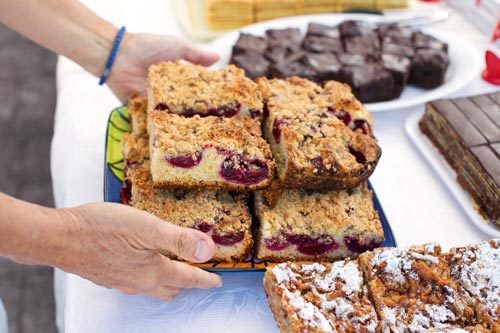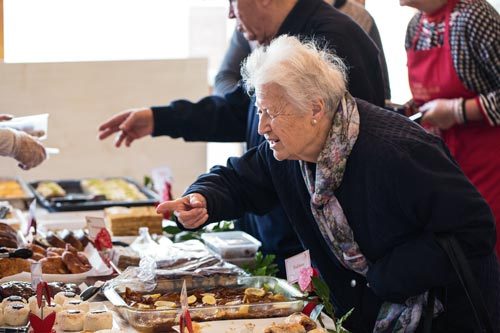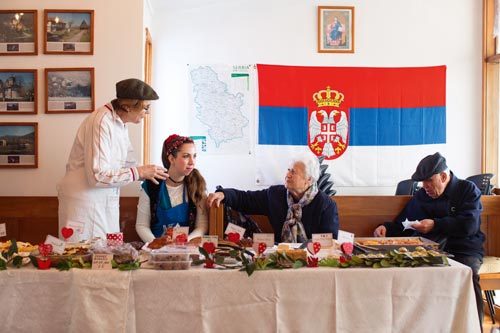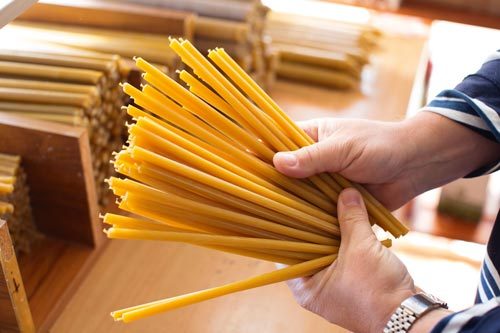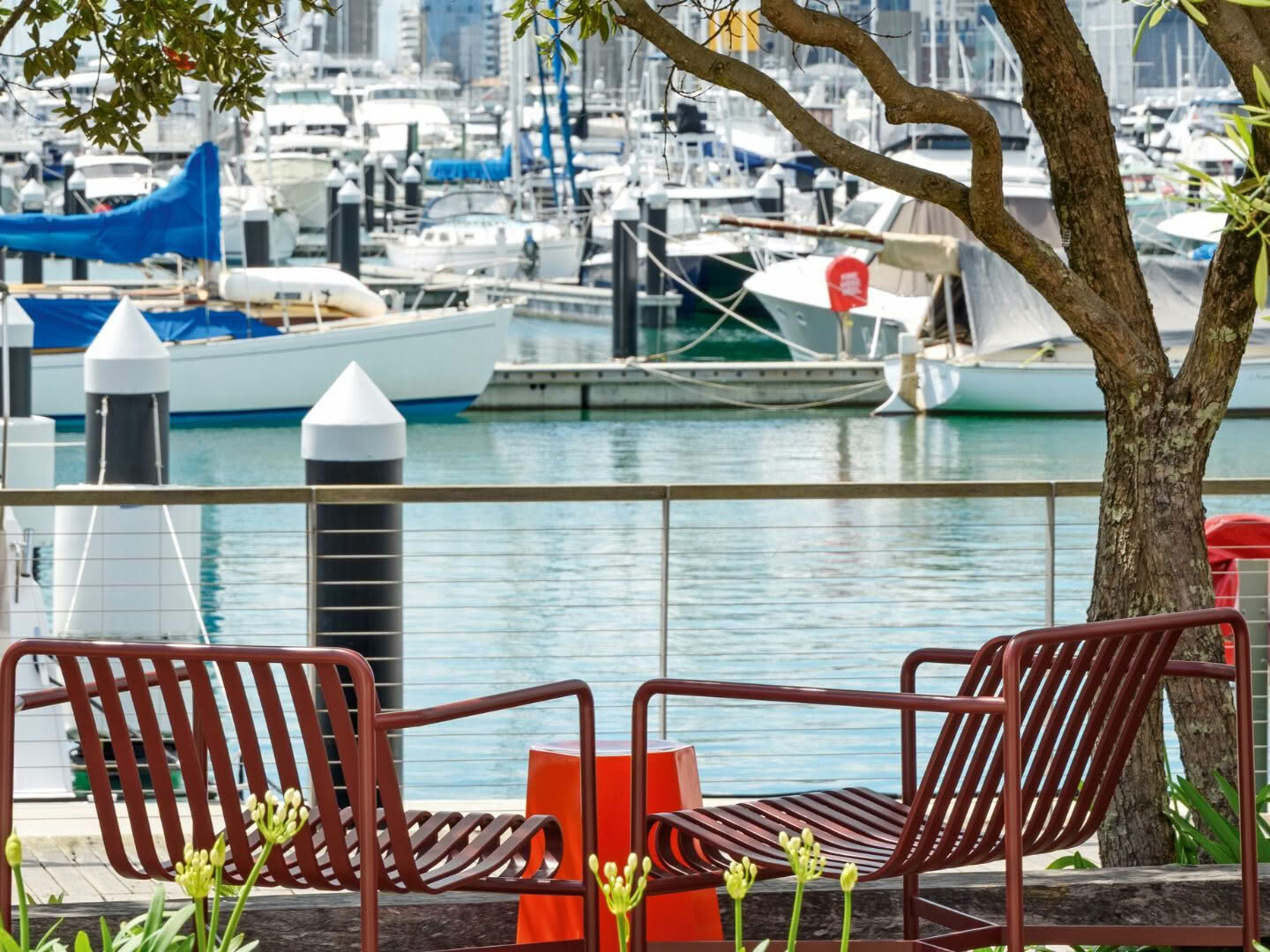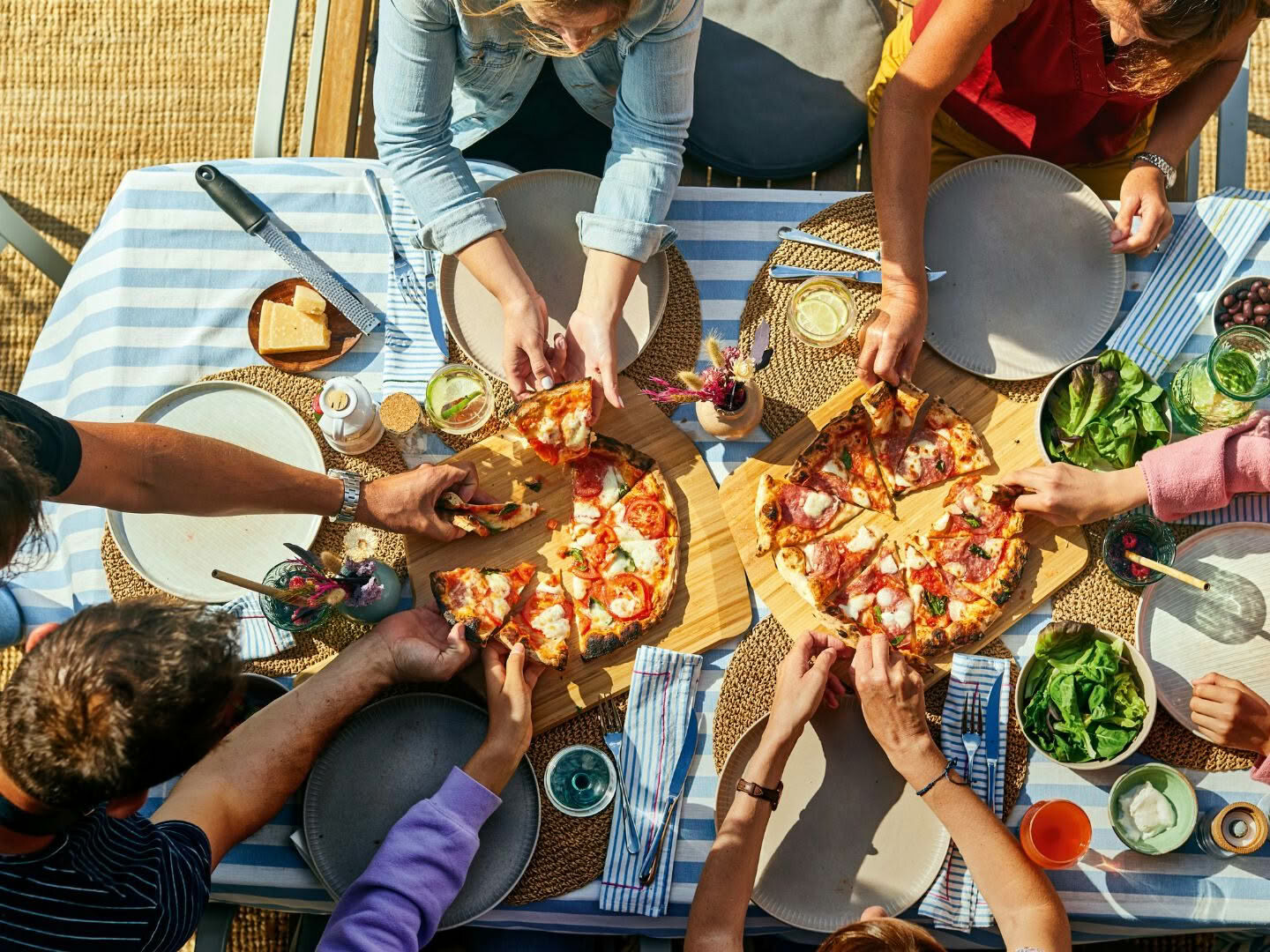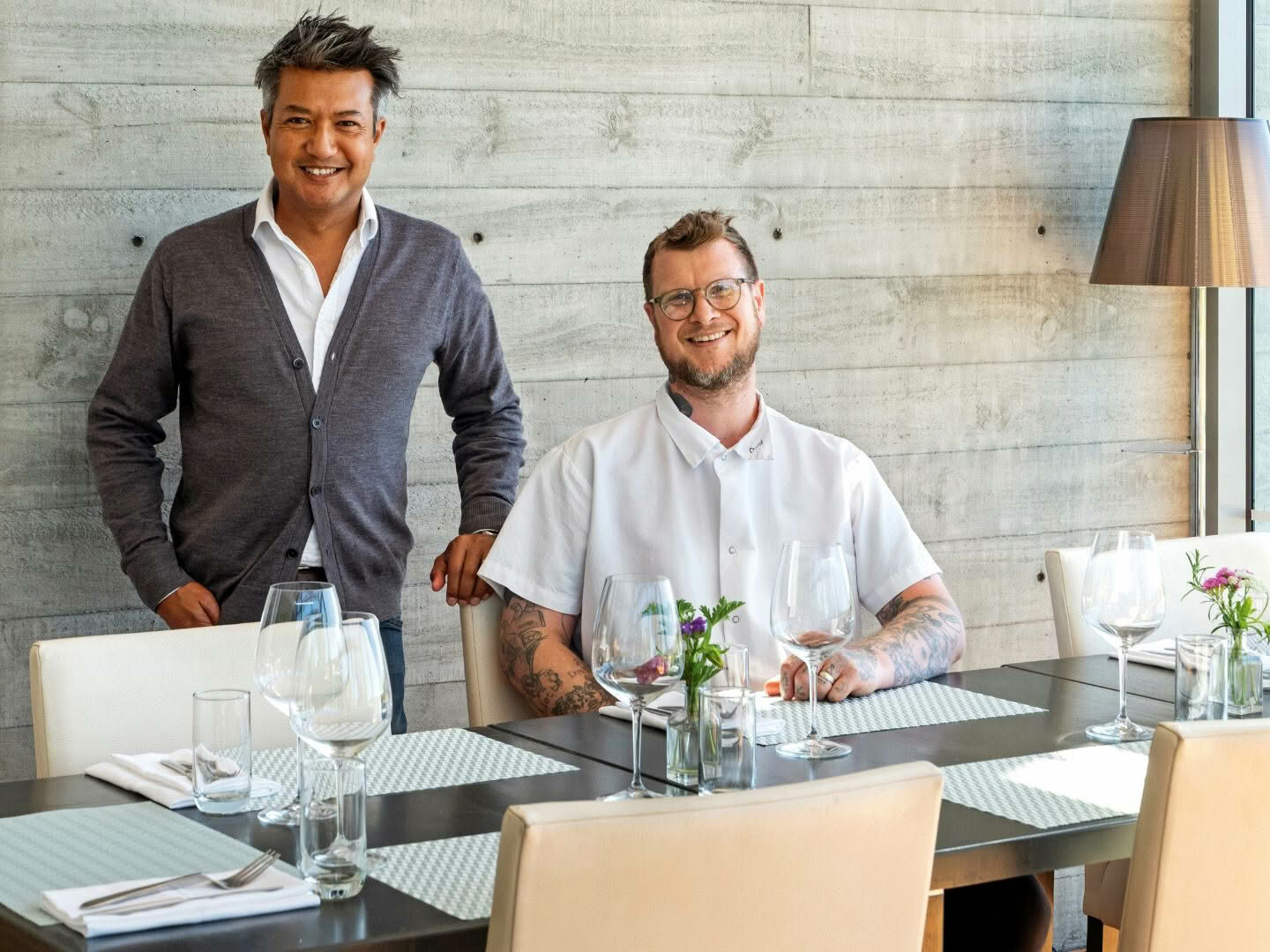Nikki Birrell finds supporting worthy causes no chore when it involves home-baked Serbian goods.
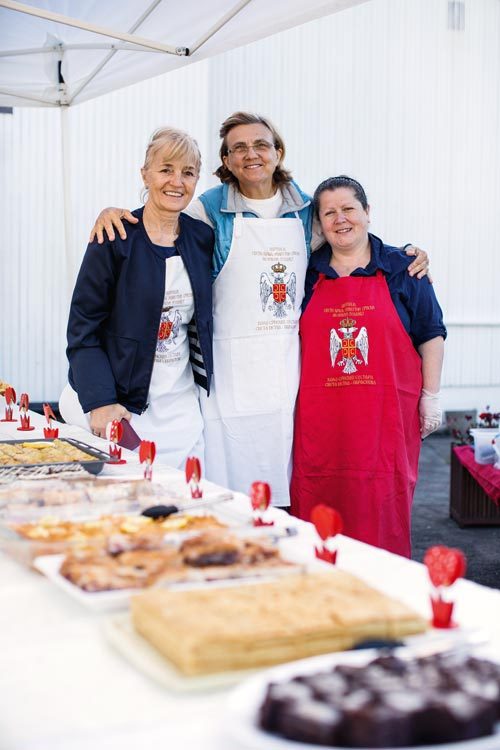
Join us in welcoming our very first six Cuisine TasteCurators in 2025.
On a foggy autumn morning in a church carpark in Auckland’s Pt Chev, a man rocks up holding a giant, empty plastic container. He’s obviously done this before and, wisely, has come prepared. Maja, the young woman standing behind a white-clothed table laden with doughy, flaky, sweet, cheesy baked goodness, spies his vessel and mentions that many of the items for sale can be popped in the freezer for storage. His reply: “Oh, they won’t last the day with my boys.” On my first crunch into the filo layers of a sour cherry strudel, I soon understand why.
The Serbian Bake Sale, held on the first Saturday of every month, has been running for nearly nine years and is a sweet fixture on the local community’s calendar, with many returning patrons. One of its organisers, Andrea Miljkovic, tells me that Serbian people from all parts of Auckland also turn up to have a “taste of home”.
Unfamiliar with Serbian cuisine, I’m interested in what that entails. On the table, there are variations of traditional filo pastry pies – layers of filo interspersed with various fillings, including cheese, egg, leek, mushroom, meat or spinach. Andrea says these are often served at breakfast with unsweetened yoghurt. But it’s hard to imagine a time of day you wouldn’t want to eat it and there’s a coiled leek version that’s spent an inordinate amount of time on my mind since.
The honey cake catches my eye next, with its immaculate multitude of thin layers of caramel-coloured sponge and honey cream. This melt-in-your-mouth dessert requires a lot of technical skill, says Andrea, and on looking it up on the internet later it seems to be a bit of an elusive wonder for many home bakers trying to recreate versions tried on their travels.
It’s going on the baking bucket list – will just need a special occasion, a spare day and a steely attitude. Maja directs me towards glossy chocolate-glazed doughnuts next and tells me these have garnered attention from media corners before. But I’m distracted by the baklava, a usual favourite ending to a Turkish or Greek meal . “Serbia has a complex history which is reflected in our food,” explains Andrea. “You’ll find German, Hungarian, Turkish, Greek and Italian influences in our food.” I even spy a cornbread and learn this is proja, a staple of the Serbian table.
There are about 20 regular bakers who contribute to this monthly bake sale, among them doctors, teachers, designers. But it’s the retirees who are the real experts, according to Andrea. “We are proud of our heritage and part of that is preparing food,” she says. “It is the way we show love to our family and recipes are often passed from one generation to another.”
It’s difficult to narrow down what to try and perhaps one shouldn’t attempt to, considering the money raised is put to such good use. Originally, when the Serbian Orthodox Church was bought in 2010, the idea for the bake sale was to raise funds for the refurbishment of the building. Says Andrea, “The Circle of Serbian Sisters St Petka is a society of women within the church and our leader, Mrs Milka Panic, came up with the idea to organise and sell baked goods to help with mortgage payments and church renovation projects.”
But apart from refurbishments, the money has also been used to support the Red Cross (after the Christchurch earthquake), the Blind Foundation Red Puppy Appeal, City Mission and sometimes is donated to families in need, among other worthy causes. With that in mind, next time I’m bringing my own giant container.
Serbian Bake Sale, Serbian Orthodox Church, 315 Pt Chevalier Road, Pt Chev, Auckland, 9am-1pm first Saturday of every month.
SEE MORE FROM CUISINE
Cuisine + Milford Sound Business Class
A ‘first-of-its-kind in Fiordland’ with Milford Sound Business……

